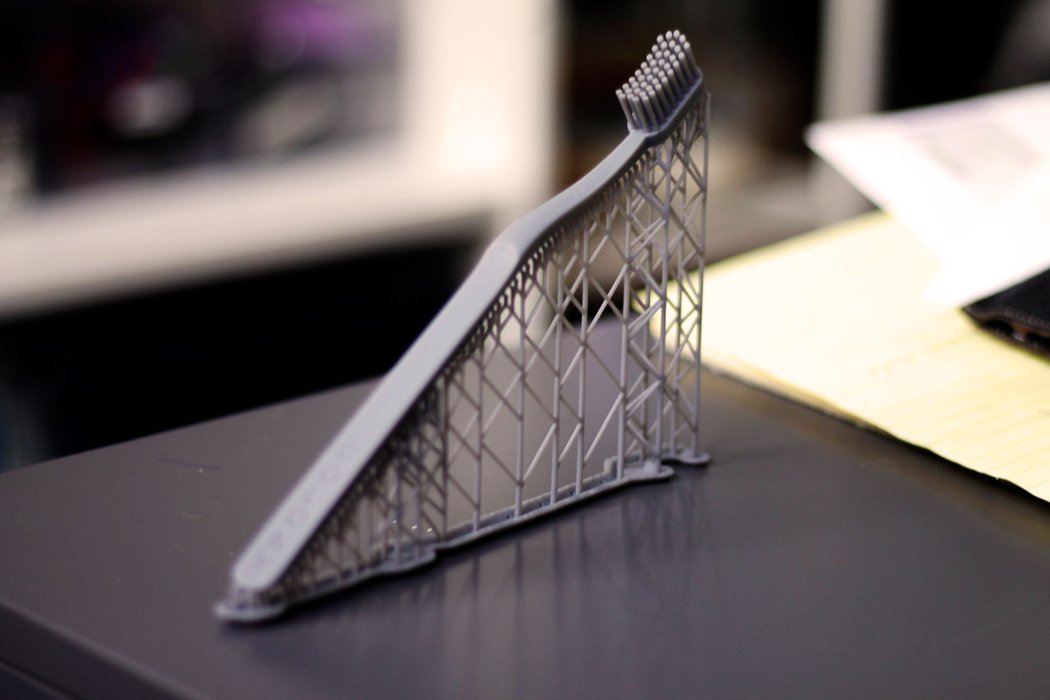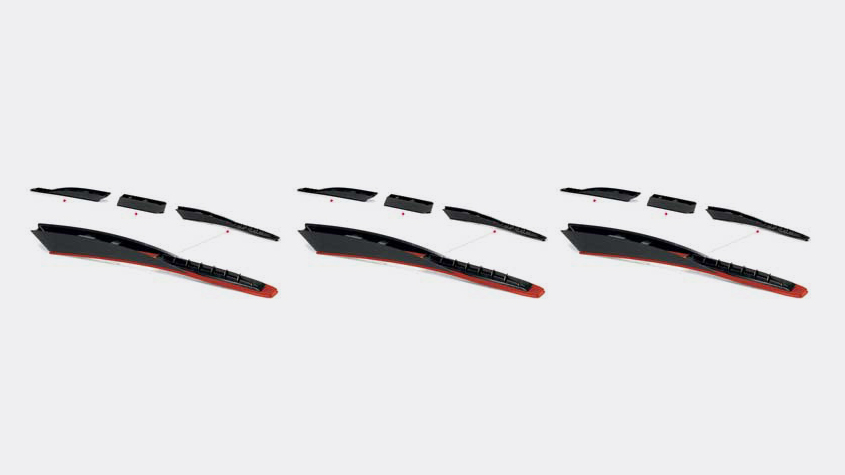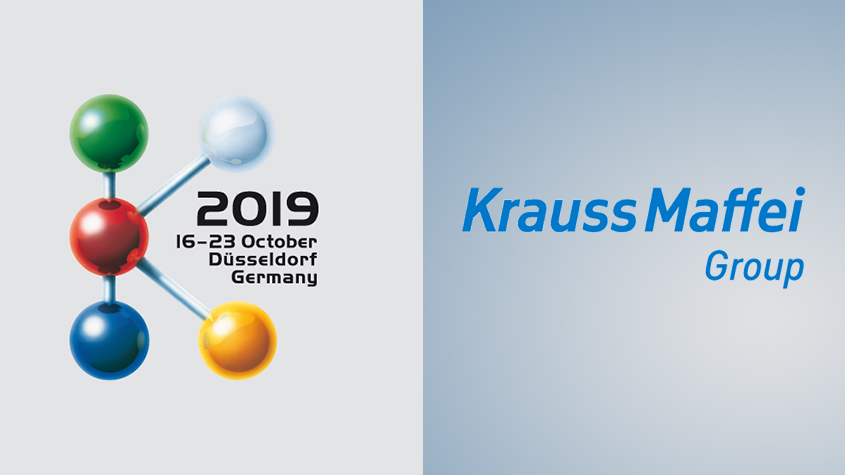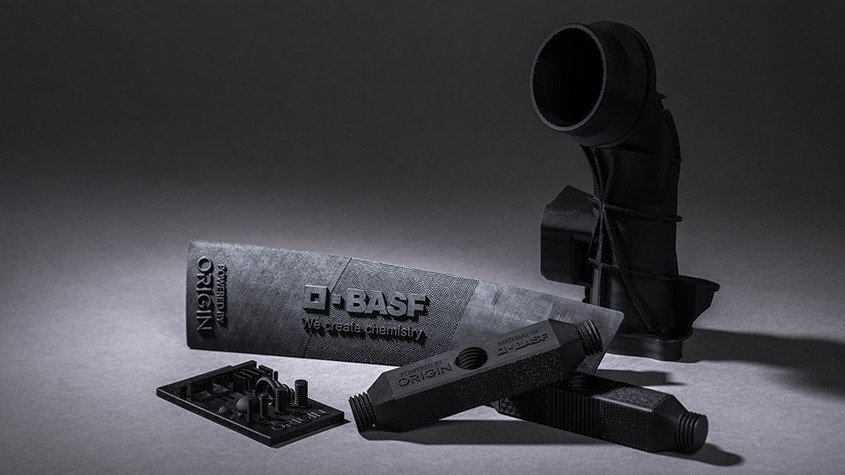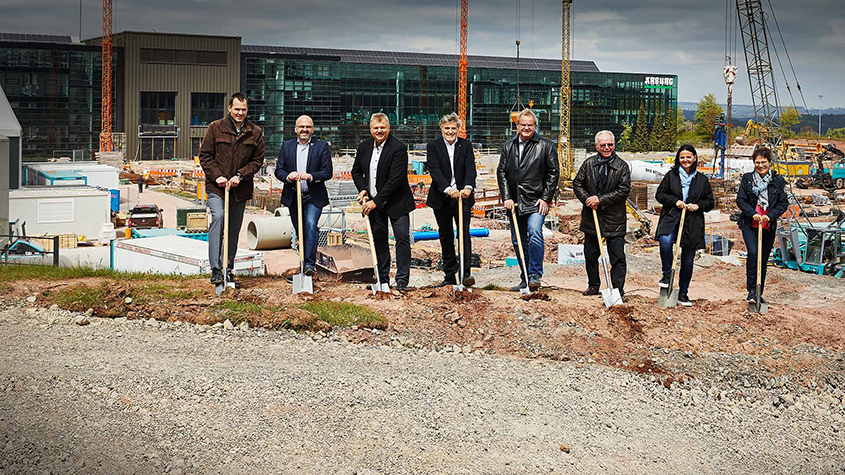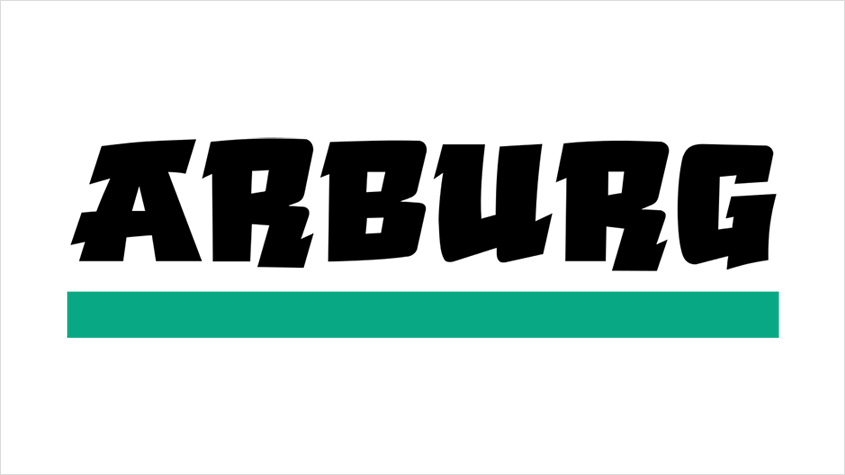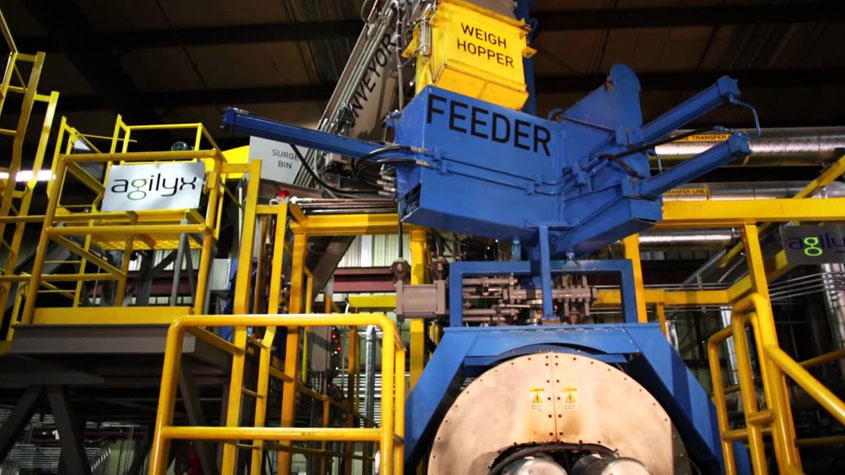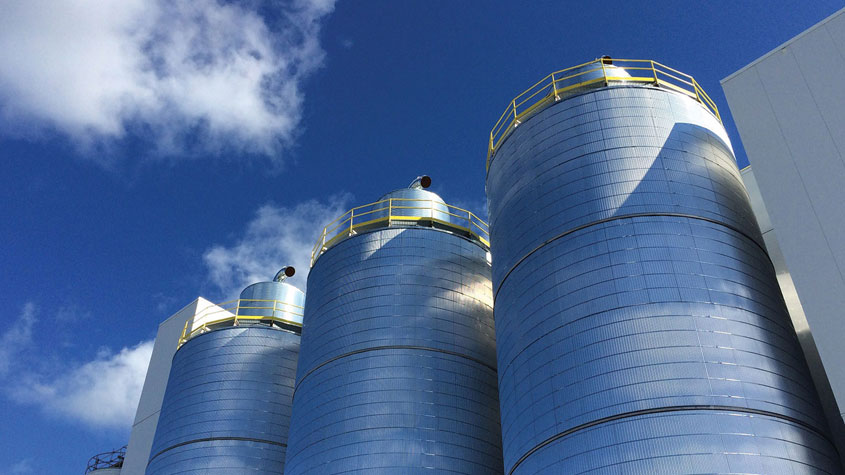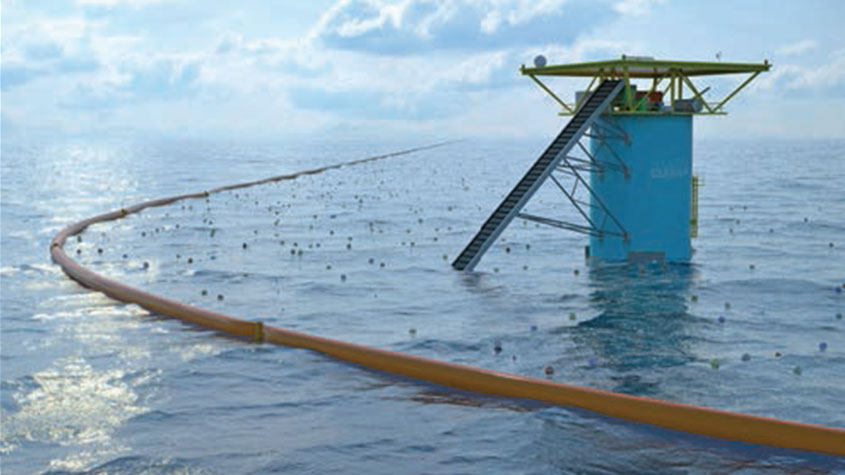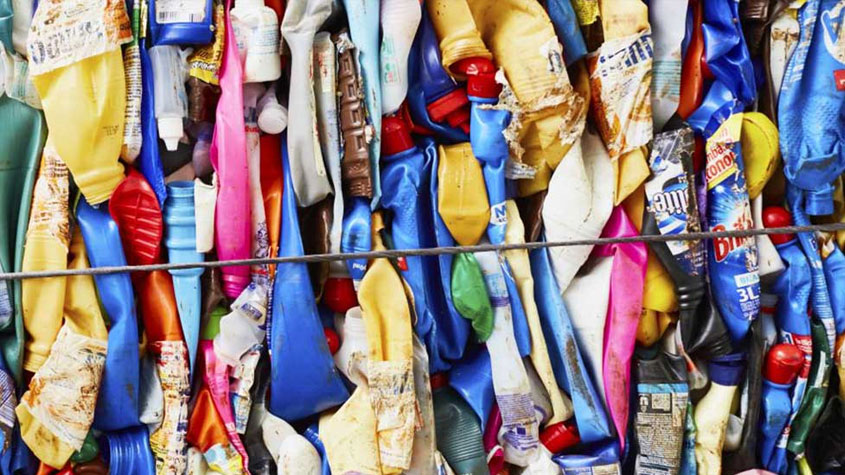Machinery News: Machinery at Chinaplas 2019
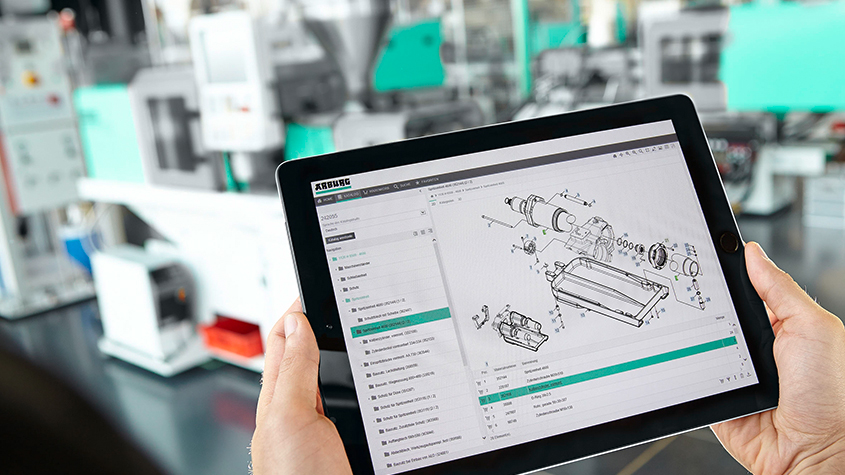
At the upcoming Chinaplas show in Guangzhou, to be held from 21-24 May 2019, machinery makers will be showing the latest in automated machinery for medical and packaging applications; as well as digital processing.
Digitalisation at the forefront from Arburg
German machinery maker Arburg will be presenting the digital future of plastics processing at its stand A41 in Hall 5.1, with several topics relevant to the subject of digitalisation to be presented: the new customer portal, the potential of augmented reality (AR) for service purposes, as well as digital assistance systems.
“Digital transformation is a topic that we as industry leaders have been focusing on for years and one that we are currently defining with our ‘Road to Digitalisation’ campaign,” explained Zhao Tong, Managing Director of the Arburg organisation in China.
“We show our customers how our innovative solutions for injection moulding, additive manufacturing and automation can help them stay on track for success as we join them on the road to the digital future of plastics processing. This allows them to fully meet all requirements in accordance with the state’s ‘Made in China 2025’ industrial development plan.”
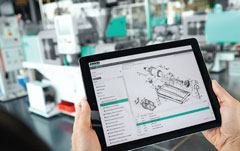
With its 30 years of know-how in IT-networked production, the company says it is advancing the digitalisation of its business processes and services. The portfolio for IT-networked and production-efficient plastic parts production ranges from digital assistance packages, predictive maintenance and remote service to the new customer portal and Arburg’s own MES, the ALS host computer system. As a central component of Industry 4.0, ALS enables online data exchange across production facilities and locations (horizontal integration) as well as with a PPC/ERP system (vertical integration). At Chinaplas, all machine exhibits will be networked via ALS.
The new customer portal, which will be presented in Guangzhou for the first time in a Chinese version, provides a variety of services using a cloud-based solution. The central apps include the “Machine Centre”, which contains information and documents for each machine, the “Shop” for ordering spare parts and the “Service Centre”. In addition, visitors have the opportunity to find out more about the six digital Arburg assistance packages for starting, setting up, optimising, producing, monitoring and servicing Allrounder machines and experience the potential of augmented reality (AR) for service purposes at first hand by means of a practical example.
In terms of industrial additive manufacturing, Arburg will show its Freeformer 200-3X. Arburg has also added the large Freeformer 300-3X to its portfolio. This threecomponent machine can additively produce complex functional components in hard/soft combinations, made from two plastic components plus support material. The new Freeformer also offers more space and higher temperatures in the build chamber and can be automated and integrated into networked production lines.
Complex LSR processing for watches and automotive lighting
Arburg will also show the production of LSR/LSR wristwatches on a hydraulic two-component Allrounder 570S with a clamping force of 2,200 kN and size 400 and 70 injection units arranged in an L-configuration. The fully automatic machine will produce two bicolour wrist straps made from the LSR materials Silopren 2670 (hardness 70 Shore A) and 2630 (hardness 30 Shore A) in a cycle time of 70 seconds. The 2+2-cavity mould is made by Ricoand the LSR dosing unit by 2KM.
The new “CPP reader” camera system automatically detects whether the correct barrel has been loaded for each of the two LSR components. Assembly of the wristwatch takes place within the moulding cycle, by means of a linear Multilift V 15 robotic system. It removes the wrist straps and sets them down in a cooling station and then in an assembly station. Here, they are fitted with the watch housing and a ready-to-use clasp.
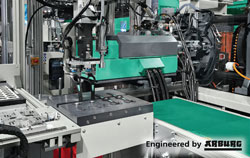
Another multi-component application is exhibited by partner Mehow where a hydraulic two-component Allrounder 470S produces water cups from PC and LSR. Handling is performed by a six-axis robot.
The automotive industry is one of the pioneers when it comes to exploiting optical silicones for lighting systems. In addition to this, LSR is also becoming increasingly important as a lens material for street and building lighting. Like the established thermoplastic lens materials PMMA and PC, silicone offers weight savings compared to glass and is superior to organic polymers in terms of thermal and chemical resistance.
Highly transparent grades for optical applications have a lower yellowing index than thermoplastic lens materials; are resistant to environmental influences such as UV radiation and can be used over a wide temperature range from -40 to +200°C. In addition, they allow flexible design and in terms of geometry, there are almost no limits when processing LSR in injection moulding.
Thus, Austrian machine maker Engel will be processing Dowsil MS-1002 Moldable Silicone by Dow Silicones, a material developed specifically for use on injection moulding machines. The curing speed has been optimised to obtain a smooth and very hard surface similar to thermoplastic. The high light transmission ensures a good luminous efficiency. In addition, the high thermal stability enables improved transparency. The surface, with its filigree structure, is moulded with reproducibility. The LED lenses leaving the production cell are ready for installation.
![]()
The tie-bar-less machine offers a number of advantages for processing LSR, such as that the robot can reach the cavities directly from the side without having to circumvent any obstacles, reducing handling time and mould opening time. On top of this, it allows for compact production cells since the mould mounting platens can be fully used up to their very edges. This means the high-volume lens mould fits on a small 120 tonne-machine.
Engel says it has also equipped the e-victory with iQ weight control, from its inject 4.0 programme, for the manufacture of the LED lenses to ensure the required precision during injection throughout the entire process. The camera system integrated in the process checks the quality of the parts, while an Engel viper 40 linear robot is used for parts handling. The mould comes from ACH-Solution, while Engel is implementing together with AVR Tech Innovations, the augmented reality (AR) solution.
Germany-based Wittmann Battenfeld will also demonstrate an LSR application for the automotive sector on its all-electric 1,600 kN-EcoPower series. The injection unit in open design allows easy integration of the LSR feeding and blending elements. A connector seal for the automotive industry will be produced from LSR supplied by Momentive, with a fully automatic 32-cavity mould equipped with an inspection system from Nexus and a Timeshot needle shutoff control for moulds with large numbers of cavities, which is unique on the market, says the firm. A gripper with a sensor system takes care of parts demoulding.
Machinery for medical parts showcased
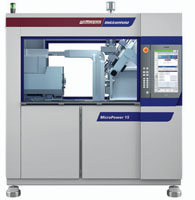
Wittmann Group says the Asian market is an important one, since in China, the Austrian firm not only has a sales subsidiary but also a facility in Kunshan that produces robots and auxiliaries (temperature controllers, material loaders and granulators) for the Asian market.
At Chinaplas, its subsidiary Wittmann Battenfeld will demonstrate on a MicroPower 15/10, the cleanroomprocessing of a 0.003 g-medical clamp manufactured from POM supplied by Ticona in a 5 second-cycle time, with a four-cavity mould from Microsystems UK. The parts are removed by a W8VS2 Wittmann robot, said to have been specially designed for the removal of small and micro parts, and passed on to a camera integrated in the production cell and in the machine’s control system for quality inspection. The parts are subsequently separated according to cavities and stacked in a stacking module.
Arburg will show an automated 600 kN-Allrounder 370 E Golden Electric producing breathing masks for babies using a single-cavity mould from Mehow. The 2.98 g moulded parts made from PC are removed and set down by a Multilift Select linear robotic system in a 15-second cycle time.
Multi-component moulding from FCS
Taiwan’s FCS Group will show brand new multi-component, high-speed machinery for medical and packaging applications.
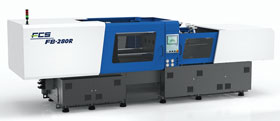
Its new generation FA series is a newly released servo hydraulic machine. The specifications and design have been upgraded and optimised, with a 30% platen strength improvement, high-performance servo energy-saving oil pump for precision, stability and improved mould lifetime. The ergonomic design of the machine integrates not only electrical control but also FCS’s iMF 4.0 Intelligent ManuFactory.
FCS says that with its more than 40 years of multicomponent experience, it has introduced the FB-R dualcolour servo power-saving machine. The 1,900-tonne machine has four sets of injection units and 18 types of multi-component configurations. By adopting a closed-loop servo valve, two series of FEA toggle systems and rotary table positioning, it allows for increased injection speed. At Chinaplas, it will demonstrate the production of infusion caps on a 24-cavity mould and cycle time of 30 seconds. As for the FB-T series, it adopts a servo motor for an increase in revolutions by 30%-50% and efficient cycle times. There is a reciprocating 180-degree rotary table, which can produce multi-component products, while the injection and clamp adopt linear potentiometer, for precision control of within 0.1 mm. The machine will be shown producing threecolour toothbrush handles.
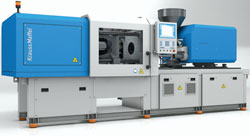
In the meantime, the HN-h/p series is characterised by precision, high speed, power-saving, stability and high efficiency, says FCS. The closed-loop machine boasts 50% increase in injection speed to 150%, according to FCS. The HN-280p, with in-mould labelling (IML), will be shown producing yoghurt cups in an eight-cavity mould and cycle time of 6 seconds.
Made-in-China all-electric machine
Meanwhile, Germany-based KraussMaffei will debut its locally produced PX Agile all-electric machine, manufactured at the company’s new Sanming location in Fujian Province.
A special stock machine programme makes the delivery of standard machines ex works possible while machines with additional options will be available for delivery within four to six weeks, says KraussMaffei.
Customers in China additionally benefit from a userfriendly human-machine interface specially tailored to the requirements of Chinese markets. Easy operation and intuitive programming ensure that the machines are accepted quickly, says the firm. The flexible sales options also allow for a free trial phase and short-term and long-term leasing plans with flexible payment plans, it adds.
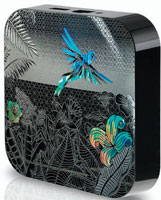 For a start, KraussMaffei will launch the PX Agile 80 and PX Agile 160 machines with clamping forces of 800 or 1,600 kN, respectively. Striking surface effects are also achievable on the PX Agile 80 in conjunction with inductive dynamic mould heating (DMH) technology provided by partner Roctool (HD Plastics). The key benefit is that additional film decoration or (secondary) painting becomes obsolete, simplifying things. Using an example of a TV set top box, KraussMaffei will demonstrate the design options of DMH. Different colour shading, holograms, gloss or matt effect, can be realised using a one-shot process without the need for additional post-mould processing.
For a start, KraussMaffei will launch the PX Agile 80 and PX Agile 160 machines with clamping forces of 800 or 1,600 kN, respectively. Striking surface effects are also achievable on the PX Agile 80 in conjunction with inductive dynamic mould heating (DMH) technology provided by partner Roctool (HD Plastics). The key benefit is that additional film decoration or (secondary) painting becomes obsolete, simplifying things. Using an example of a TV set top box, KraussMaffei will demonstrate the design options of DMH. Different colour shading, holograms, gloss or matt effect, can be realised using a one-shot process without the need for additional post-mould processing.
Both machines on show will be equipped with the new LRX Agile from KraussMaffei. The new linear robot series is also produced at the KraussMaffei plant in Sanming.
KraussMaffei showcases pioneering Additive Manufacturing solutions at formnext
precisionPrint stereolithography 3D printer show smultilaser-technology for series product…

